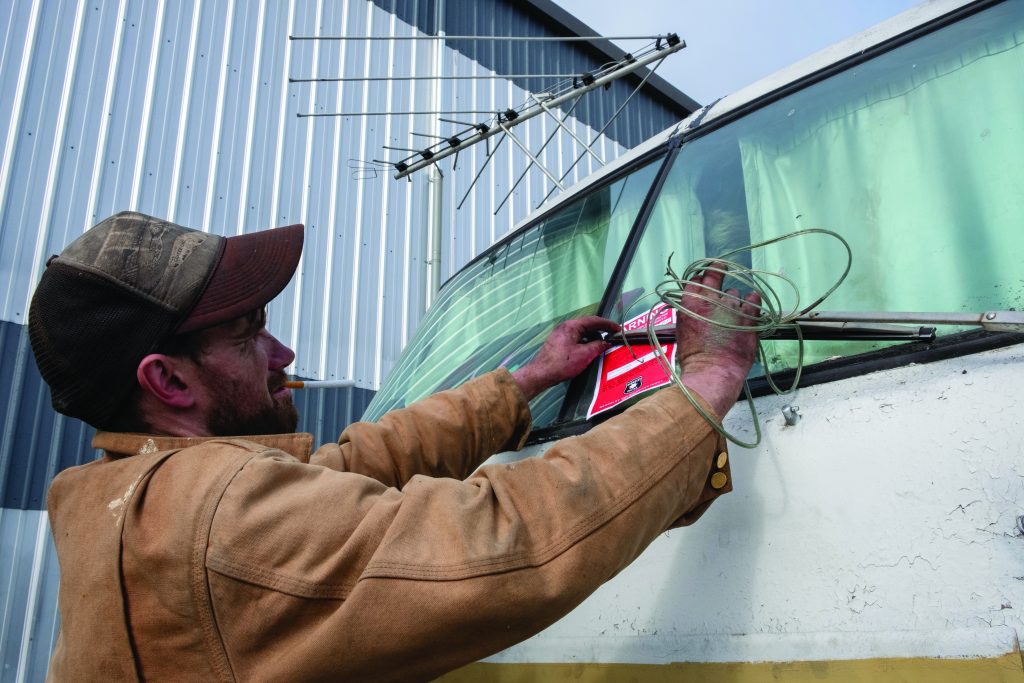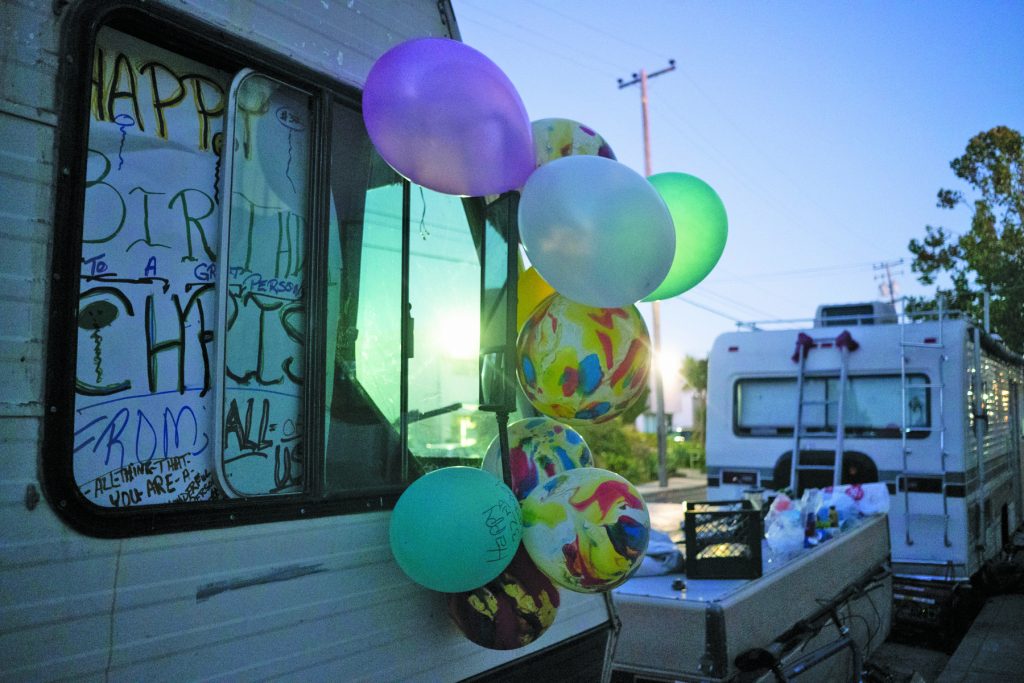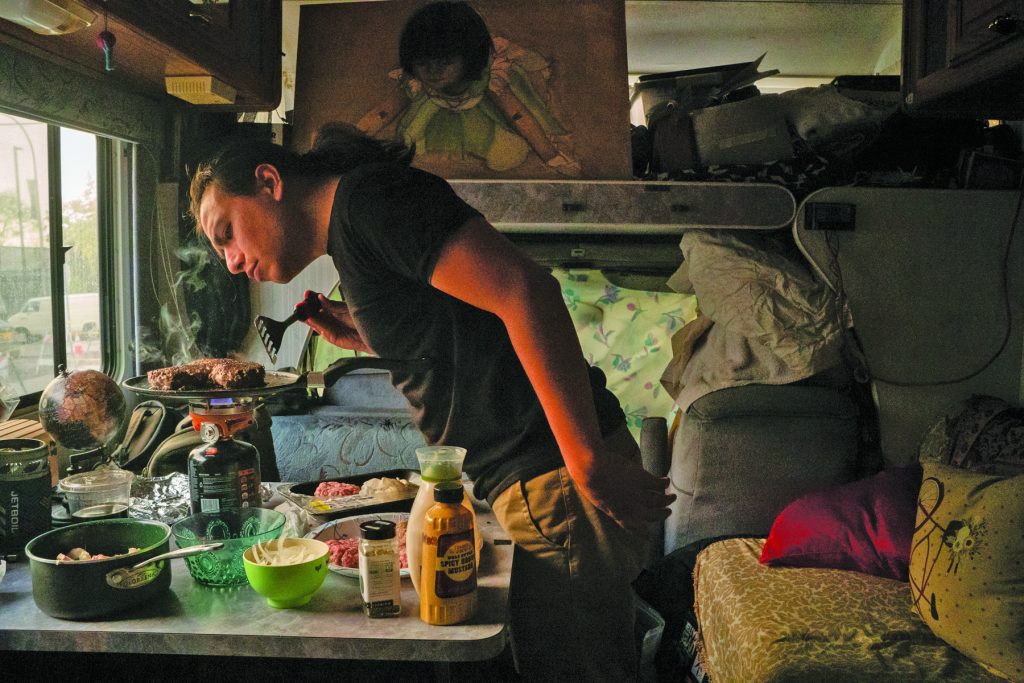
On February 11, Berkeley City Council approved safe overnight parking for a total of 25 RVs in six scattered city-owned sites. While safe parking will provide a brief respite for a small number of unhoused Berkeley residents, these spots will be the catalyst of an otherwise total eviction of RV dwellers from the City of Berkeley.
The mechanism of the RV ban is an old local ordinance against parking large commercial vehicles on city streets between 2:00 and 5:00 in the morning that, until now, has remained largely unenforced. Last spring, the City Council discussed using the commercial vehicle prohibition to remove homeless people living in RVs from West Berkeley.
In March, City Council heard many hours of public comment from people on the issue of the RV ban. Housed Berkeley residents claimed that the RV community’s presence made park- ing more difficult and increased the amount of trash on the street. Residents who lived in RVs shared stories about their children in Berkeley schools, their careers in Berkeley businesses, and their long-time residence in Berkeley homes. One sentiment was echoed by many people who live in RVs: vehicle dwelling is a last chance to avoid living on the streets.

The council voted to enforce the RV ban with the stipulation that further research would be done to effect a smooth and humane transition. The council agreed that they would not be- gin enforcement until they were able to create temporary overnight parking for a select group of RVs.
Directed by the council, city staff researched the enforcement of over- night RV bans in other cities and safe locations for 24-hour RV parking. Staff came up empty-handed on both counts: no model cities seemed to be enforcing a ban on their residents’ RVs, and no private sites wanted to host 24-hour RV parking for the city.
Without the precedent of a smooth model eviction or ideal transition site, the city is still moving forward with the 2:00 to 5:00 am parking ban with only 25 spots available for three hours each night on city property for a period of three months.
The City of Berkeley did not respond to Street Spirit’s request for comment.
“By enforcing this ban, they’re stopping people from holding normal jobs with normal hours,” says Amber Whitson, an RV-dwelling member
of the Berkeley Friends on Wheels community. “If you have to get up every hour between 2:00 and 5:00 in the morning to move your vehicle, it’s not possible to have a normal job. Businesses aren’t open between 2:00 and 5:00 am. It won’t do a thing for businesses, it’ll just torture us.”
Berkeley police estimate that there are 200 RVs in Berkeley, 139 of which are RV households. To select the 18 percent of RV households who will receive overnight parking spots, the city will prioritize people who have children enrolled in Berkeley schools, are students themselves, have jobs in Berkeley, or who recently lived in houses in Berkeley. However, Whitson says that the Bay Area Community Services (BACS) worker who came to survey RV dwellers in her community misunderstood the requirements.
“He was asking if we had ever worked for the City of Berkeley. I told him I had worked in Berkeley for years, and he didn’t even write that down. I knew from the City Council meetings that he was supposed to be asking who had worked for any businesses in Berkeley, but he was asking only for people who had worked for the city,” Whitson says.
It is not clear at this time what will happen to the 25 households that do secure overnight spots if they are un- able to become housed before the end of the three-month period. Whitson says that those households will experience substantial financial hardship from the cost of gas incurred by mov- ing their RVs to the sites every night and then back out every morning. She suspects most will be forced to apply for extension indefinitely.
The saga of West Berkeley’s RV troubles began in May of 2018 when the City of Berkeley evicted Berkeley Friends on Wheels from their longtime parking locations on Marina Boulevard, prompting a move to the Hs Lordships parking lot. Shortly thereafter, the city again forced the RVs to move with only a week’s notice, citing state-wide rules that the marina land grant be used for waterfront purposes only.
After being forced out of the Marina, the RV community settled in West Berkeley. They approached Mayor Jesse Arreguín and West Berkeley Councilmember Rashi Kesarwani about a large neighboring vacant lot the group could afford to lease if they pooled their funds. According to Whitson, the community never heard back after initial meetings.

Stuck on the streets of West Berkeley, the RV community began to draw complaints from its neighbors. In addition to neighbors’ complaints about garbage and parking, local businesses claimed that the community made it challenging for them to attract customers. Councilmember Kesarwani felt that the burden to her district was too high, and brought the matter before the City Council.
Councilmember Cheryl Davila has said she would like to look further into the waterfront ban which provided the initial justification for evicting RV residents at the Marina, in hopes that RVs may actually be allowed to park there. She has been joined by Councilmembers Kate Harrison and Rigel Robison in repeatedly voting against the council’s decisions to evict RV residents from Berkeley.
It remains to be seen if the City of Berkeley will enforce the ban on all large commercial vehicles, or just those that are being used as homes.
As for the lot that Berkeley Friends on Wheels wanted to pay to lease, it is soon to be leased to a towing company that recently towed an RV in which Whitson’s neighbor was living.
Whitson plans to continue to organize with Berkeley Friends on Wheels for fair treatment for the RV community.
“I’m not going to be bullied,” she says, “because what Berkeley is doing is wrong.”
Hannah Trumbull is a community organizer and writer who lives in a co-op in Piedmont, CA. She mobilizes the Jewish community for social action at Repair the World (@bayarea_repair on Instagram), and is a member of Foodz Mutual Aid (@food4oakland).
